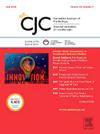The “Small” Clinical Trial: Methods, Analysis, and Interpretation in Acute Care Cardiology
IF 5.8
2区 医学
Q1 CARDIAC & CARDIOVASCULAR SYSTEMS
引用次数: 0
Abstract
Clinical trials in acute care settings, particularly those involving small populations or high mortality contexts, present unique challenges in design and analysis. In this review we explore novel statistical approaches and methodological considerations for such trials, with a focus on cardiovascular therapies. We discuss the concept of “small” sample sizes and their limitations and cover various analytical frameworks, including frequentist and Bayesian approaches, and emphasize their implications for result interpretation and reproducibility. We examine end points such as “days alive and free specific to disease state,” which combines mortality and morbidity measures, the win ratio for hierarchical end points, and ordinal scales that capture detailed patient outcomes. These methods potentially increase statistical power and provide more clinically relevant measures compared with traditional binary outcomes; an extensive use of simulations is used to clarify this point. The use of longitudinal ordinal models is presented as a promising method to capture complex patient trajectories over time, offering insights into treatment effects at various disease stages. We also address the potential of adaptive platform trials for rare conditions, allowing for more efficient use of limited patient populations. In this overview we aim to guide researchers and clinicians in selecting optimal trial designs and analytical strategies, to ultimately improve the quality, efficiency, and interpretability of evidence in acute care cardiology.
小型 "临床试验:急诊心脏病学的方法、分析和解释。
急症护理环境中的临床试验,尤其是涉及小规模人群或高死亡率环境的临床试验,在设计和分析方面面临着独特的挑战。本综述探讨了此类试验的新型统计方法和方法学注意事项,重点关注心血管疗法。我们讨论了 "小 "样本量的概念及其局限性,并介绍了各种分析框架,包括频数法和贝叶斯法,强调了它们对结果解释和可重复性的影响。我们研究了 "存活和自由天数"(DAF*)等终点(结合了死亡率和发病率指标)、分层终点的 Win Ratio 以及捕捉患者详细结果的序数量表。与传统的二元结果相比,这些方法可能会提高统计能力,并提供更多与临床相关的衡量指标;为阐明这一点,我们广泛使用了模拟方法。纵向序数模型是一种很有前景的方法,可以捕捉患者随时间变化的复杂轨迹,深入了解不同疾病阶段的治疗效果。我们还探讨了针对罕见疾病的自适应平台试验的潜力,以便更有效地利用有限的患者群体。本综述旨在指导研究人员和临床医生选择最佳试验设计和分析策略,最终提高急诊心脏病学证据的质量、效率和可解释性。
本文章由计算机程序翻译,如有差异,请以英文原文为准。
求助全文
约1分钟内获得全文
求助全文
来源期刊

Canadian Journal of Cardiology
医学-心血管系统
CiteScore
9.20
自引率
8.10%
发文量
546
审稿时长
32 days
期刊介绍:
The Canadian Journal of Cardiology (CJC) is the official journal of the Canadian Cardiovascular Society (CCS). The CJC is a vehicle for the international dissemination of new knowledge in cardiology and cardiovascular science, particularly serving as the major venue for Canadian cardiovascular medicine.
 求助内容:
求助内容: 应助结果提醒方式:
应助结果提醒方式:


